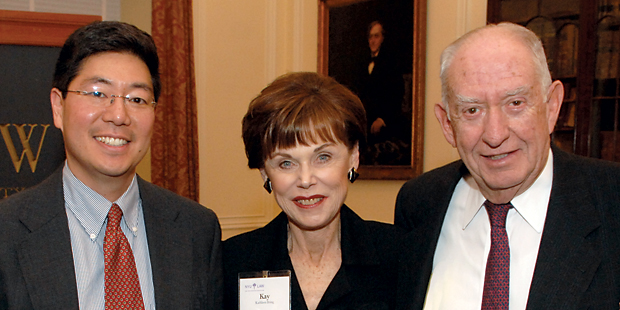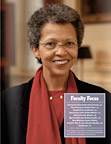How to Prevent the Next WorldCom or Enron
Printer Friendly VersionIn a successful effort to raise $12 billion in capital through the largest bond offerings in American history, WorldCom, a publicly traded telecommunications company, “waved the magic accounting wand” in order to make a $3.8 billion operating expense in 2001 appear as a future capital expenditure. But the following year, WorldCom’s internal auditing department revealed the fiscal sleight of hand; the company filed for bankruptcy, and in 2005 former CEO Bernhard Ebbers was found guilty on all counts and sentenced to 25 years in prison. WorldCom eventually paid billions in claims and settlements, and its stock became worthless.
In “Private Enforcement of the Securities Law,” his inaugural lecture as the Murray and Kathleen Bring Professor of Law, Stephen Choi argued that private securities class action suits would help deter companies from engaging in the sorts of risks that caused WorldCom’s downfall as well as provide adequate compensation to those whose net worth is wiped out in the process.
Private securities class action suits, however, can be plagued by all kinds of frivolous claims because of plaintiffs’ attorneys who “file first and ask questions later,” according to Choi. “Many plaintiffs’ attorneys may file suit even if there isn’t any smoking-gun evidence of fraud,” he said, “in the hopes of scoring a settlement from a company that wants to avoid the hassle of litigation.” Congress addressed this scourge through legislation, overriding President Bill Clinton’s veto to pass the Private Securities Litigation Reform Act (PSLRA) in 1995. In part, the PSLRA requires plaintiffs to plead with particularity—identifying the alleged fraud and explaining precisely how they were misled prior to discovery. This law has achieved the desired effect of rooting out frivolous suits while still allowing meritorious suits that lacked the hard evidence prior to discovery to proceed.
Choi urged flexibility, however, in addressing the problem of companies that cook the books. Class action suits are just one method of ensuring accuracy in corporate disclosure. Others include greater enforcement and regulation by the Securities and Exchange Commission, audits by third-party gatekeepers such as independent accounting firms, private securities arbitration, and further reforms of private litigation. The 1998 Sarbanes-Oxley Act, an ex-ante mechanism that requires certification for CEOs and CFOs, Choi said, is another solution, albeit an expensive one for innocent companies. “Ex-ante may be a mechanism, but it’s a costly mechanism, to the extent that it doesn’t just apply to the fraudsters…but to all companies,” he said.
Putting hope in one simple solution, Choi said, might result in greater costs incurred by companies both big and small, valid suits being discounted and honest plaintiffs’ attorneys unable to do battle against reckless corporations.
—

